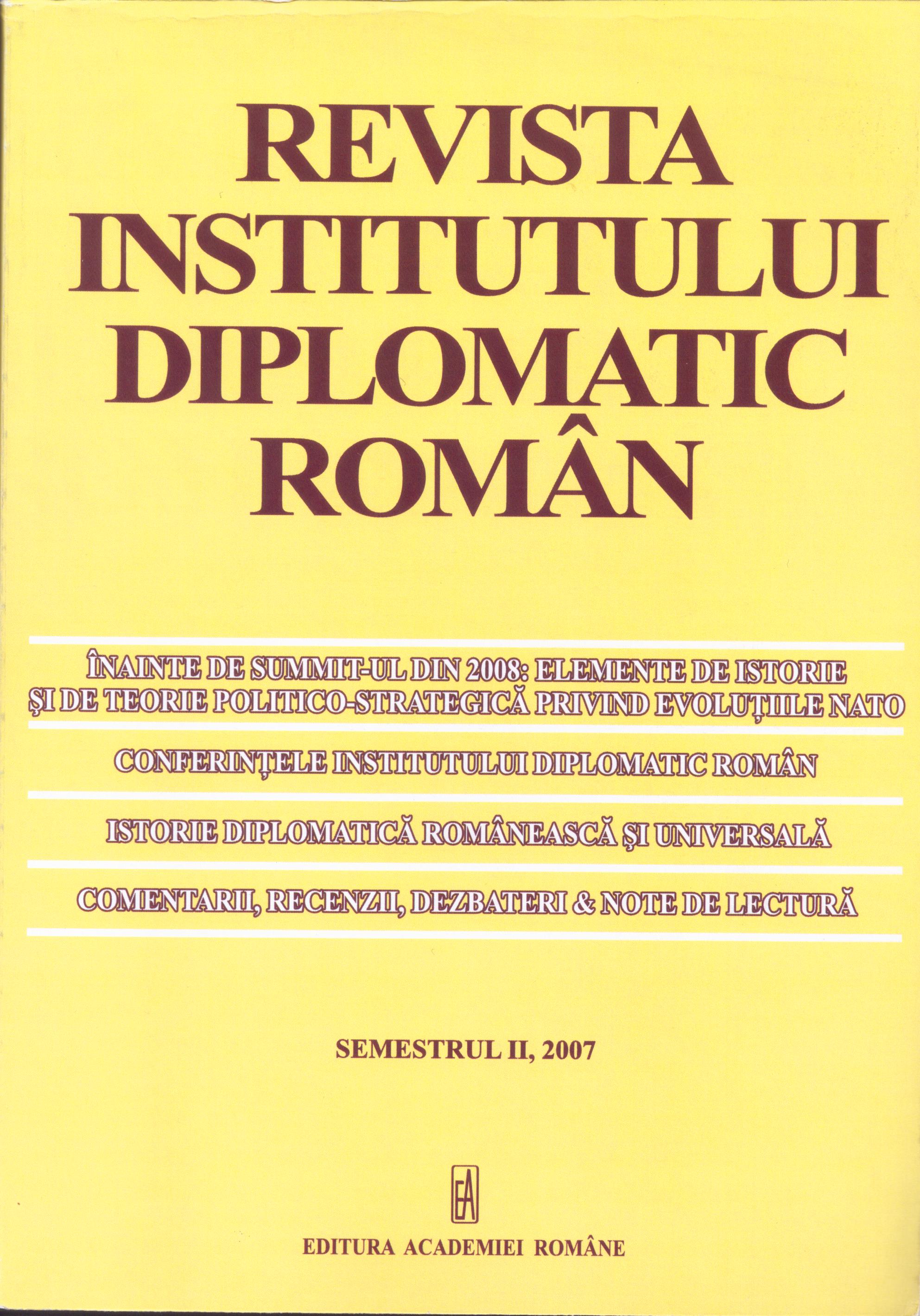Acordurile de la Evian. Încheierea conflictului? „Cântecul de lebădă" al „Algeriei franceze"
The Evian Agreements. The end of the conflict? "The Swan Song" of "French Algeria"
Author(s): Cosmin LotreanuSubject(s): History, Post-War period (1950 - 1989)
Published by: Institutul Diplomatic Român
Summary/Abstract: This article is concentrated on the Evian agreements, signed in March 1962. Unfortunately, the signature of the agreement didn’t mean the end of the confrontation between France and her former territory, Algeria. The peace, in this area, came with pain, sufferance and destruction for the both sides involved in this war. (1954-1962) The attitude and the politic behavior of Charles De Gaulle (the French President, 1958-1969), was the key for ending this conflict.The Algerian insurrection and fight for independence started, military speaking, in November 1954. At that time, the French leaders, as François Mitterrand (minister of internal affairs in the government led by Pierre Mendès France and future president of the country, between 1981- 1995) had a clear attitude regarding the battle of Algerian people for independence and sovereignty. For him, and not only for him, Algeria was a province of France.In 1958, Charles De Gaulle launched his famous words, during a speech, “Je vous ai compris”, but after a certain time, he proposed to the principal Algerian political (FLN, Front de Libération Nationale) organization “la paix des braves”. During the years to come (1960-1961), De Gaulle expressed his strong will, for good and all, to give to Algeria the possibility to choose the independence. For the French president, the decolonization was the centre of the French policy.Certainly, the Algerian secession came with social, military and political disturbances. I tried to present, in a few ideas, the strong opposition of the partisans of “Algérie Française”, symbolized by OAS (Organisation Armée Secrète) and by the action of the high officers of the French army.(so-called “the Putsch of Generals”) By his attitude, action and charisma, Charles De Gaulle managed this crisis situation.Finally, I introduced some ideas about the civilians’ drama, showing that this war caused terrible problems to the population, both Algerians and French.After all, as a final conclusion, I presented, in a few words, the perspectives of the Mediterranean world, from yesterday to tomorrow. The painful lessons from the past could be useful for the actual and future policy and I would like to welcome the idea of “Mediterranean Union”, as a proposed community of European Union member states and countries bordering the Mediterranean Sea.
Journal: Revista Institutului Diplomatic Român
- Issue Year: II/2007
- Issue No: II
- Page Range: 463-471
- Page Count: 9
- Language: Romanian

